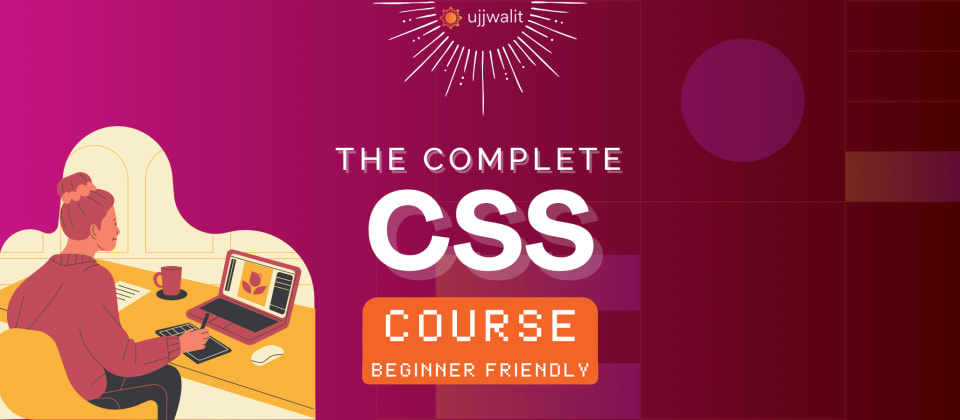
The Complete CSS Course: Beginner Friendly
Hey Devs!
Welcome to your journey into the world of CSS (Cascading Style Sheets) — the artistic backbone of every well-designed website. Whether you're here to enhance a basic HTML page or to start building beautiful, responsive, and interactive user interfaces, you're in the right place.
In this guide, we’ll take a tour through core CSS fundamentals, from syntax to layout systems, animations, and responsive design — linking you to detailed blog posts for each topic. Grab your favorite code editor, and let’s dive in!
Prerequisites
Before starting, make sure you're familiar with basic HTML. If you need a refresher, check out our HTML guide here.
Course Index
1. Introduction to CSS: A Beginner's Guide
Start your journey by learning what CSS is, why it matters, and how you can apply it to your HTML using:
- Inline CSS
- Internal CSS
- External CSS
Also, get introduced to the concept of selectors — the heart of CSS targeting.
2. Understanding Colors in CSS
Design starts with color! Learn:
- How to style text and background with colors
- Types of color values (HEX, RGB, HSL)
- How to use gradients to enhance your visuals
3. Understanding the CSS Box Model
Every element on a web page is a box. Learn how to manage space using:
- Content, Padding, Border, and Margin
- The difference between Content Box and Border Box
- Visualizing and debugging your layout like a pro
4. CSS Positioning
Part 1: Static and Relative
Part 2: Absolute, Fixed, and Sticky
Understand how elements are placed on the page with our easy parking lot analogy! These posts cover:
- The 5 positioning values
- Layering and stacking context
- Real-world layout scenarios
5. Pseudo-elements in CSS
Discover how to add styling without extra HTML using ::before, ::after, and more. Perfect for creative effects and clean code!
6. Pseudo-classes and CSS Transitions
Bring your designs to life by responding to user actions like hover, focus, and clicks — without JavaScript. You’ll also learn how to smoothly animate changes using transitions.
7. Mastering Layout Systems
Flexbox – Build a NavBar
Flexbox makes 1D layouts a breeze. Learn how to:
- Align and distribute items in rows/columns
- Build a navigation menu project
Grid – Build a Skills Section
Grid is Flexbox’s 2D sibling, ideal for more complex layouts. Master rows, columns, and area placement with ease.
8. Master Animations in CSS
Move beyond transitions and get into full-blown CSS animations. You’ll learn about:
@keyframes- Animation shorthand
- Practical use cases like loading screens
9. Functions in CSS
CSS can calculate values dynamically! Explore:
calc(),min(),max(),clamp()- Use-cases for fluid design, spacing, and responsiveness
10. Responsive Design in CSS
Websites must look great on every screen. This blog teaches:
- Mobile-first design
- How to use media queries
- Tips for building flexible, responsive UIs
11. Variables in CSS
Avoid repetitive code and increase maintainability using CSS variables. Learn:
- How to define variables in
:root - Organizing and reusing styles consistently across your project
Wrapping Up
CSS is more than just decoration — it’s the language of style, interaction, and design. With this course, you’ve covered everything from basic styling to layout techniques and responsive design.
Bookmark this guide as your roadmap, and dive into each linked blog post to deepen your understanding. Practice is key — so don’t hesitate to build mini-projects, test new properties, and experiment often.
Enjoy the content here?
Sign up on our platform or join our WhatsApp channel here to get more hands-on guides like this, delivered regularly.
See you in the next blog. Until then, keep practicing and happy learning!
6 Reactions
2 Bookmarks
